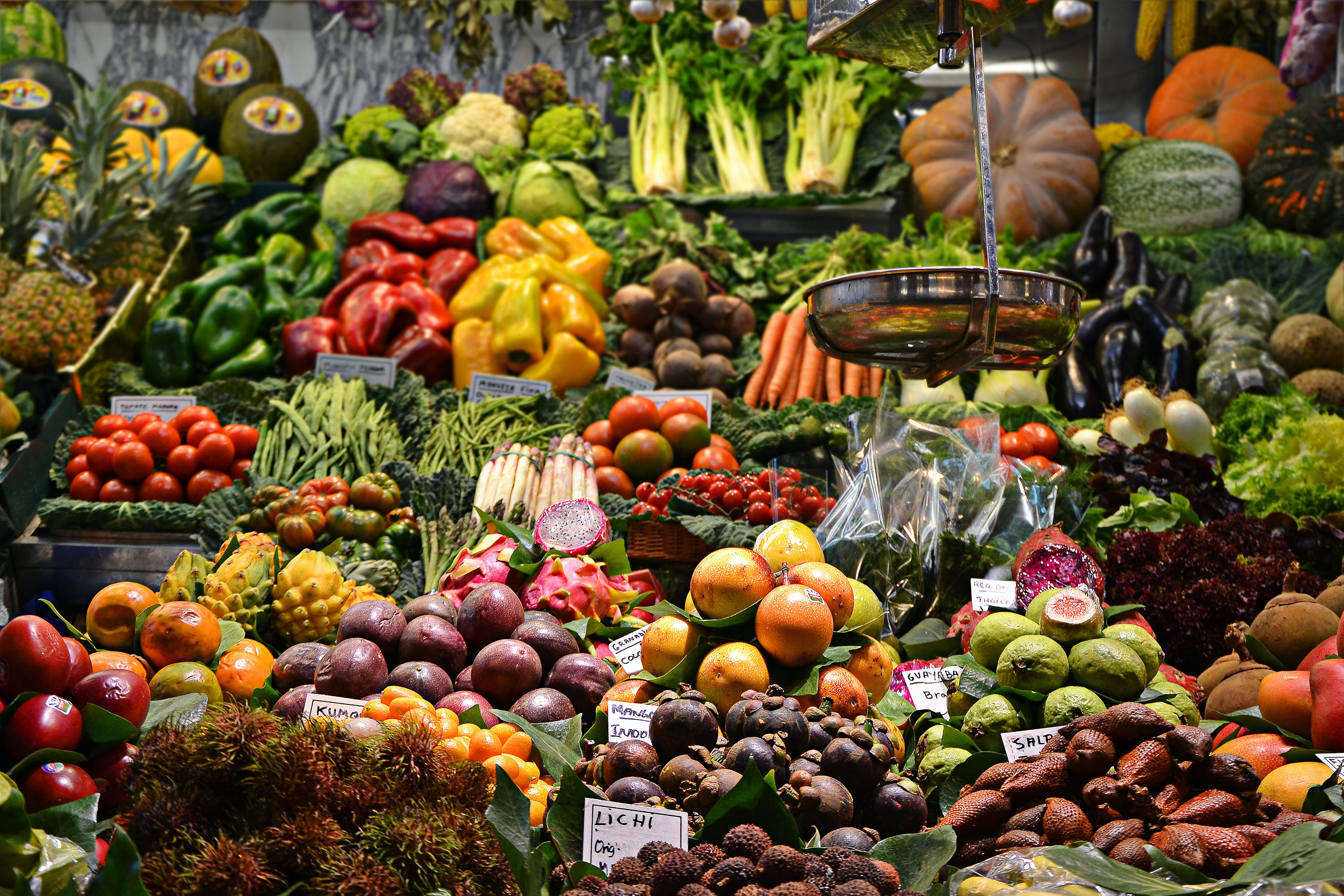
Action - Food
We all eat food. And so we should! But what we eat has a huge impact on the living world (of which we are a part, though sometimes it's easy to forget that). In years gone by our diets were much more varied than they are today, and pretty much everything we use to eat was grown locally - with most people growing at least some of their own food.
These days, however, diets in rich countries are shaped by a handful of global companies that control much of food production and distribution - and with this lack of sytem-complexity comes greatly increased risks of disruption, shortages and price hikes. And yet the majority of the world's calories are still produced by small-scale farmers, even though many of us here in the UK wouldn't know one end of a dibber from the other, let alone how to milk a horse.
Animal Agriculture, land and water use
As a nation of animal lovers, Brits would be appalled by what goes on in parts of the meat industry behind closed doors. Animals have been bred to grow at unnatural rates in unhealthy conditions in order to keep prices down. Keeping them alive requires industrial-scale use of anti-biotics, and huge amounts of energy for heating and feed production.
Global deforestation is also rife in order to grow enough soy and maize to feed to these animals. There is not nearly enough land in the UK to grow enough feed for all the chickens we rear and these so-called "ghost acres" are out of sight and out of mind - often in what was until recently pristine rainforest, cleared for animal-feed production.
Pollution from farms - fertiliser run-off and animal waste - pollute British waterways and sadly fish farming is often just as damaging.
Vegetarian and Veganism
Given the multiple problems with animal farming, cutting down on meat consumption (particulalry red meat) has multiple benefits - to your health, to the animals that would otherwise suffer, and to prevent the destruction of habitats full of life and biodiversity (habitat destruction also increases the risk of pandemics such as Covid-19).
Frustratingly, meat-free products are often not as cheap as one would like, but introducing a meat-free day, going vegetarian or even full-on vegan is one of the best things you can do to reduce your environmental impact. Milk alternatives are readily avialable, but it's worth bearing in mind that some have a very high water-footprint. If you find some good vegan cheese, please let us know!
Local and Seasonal
Food miles are thorny subject - largely because different food is transported in different ways, but also because it's easier to grow some items in different parts of the world. Pretty much the only rock-solid piece of advice is to buy what's in season locally, but it's also true that anything shipped by air is likely to have a high carbon footprint.
If you visit local, independently run food shops you can ask about the origin of the ingredients and make better-informed decisions, whilst also supporting the local economy.
Food waste
Nautre doesn't do waste, and food waste is only ever a few weeks or months from being a crucial part of growing the next thing for us to eat.
If you have space for a compost bin, or a wormery then go for it - if not, there are plenty of other options available.
If you would like to join the Mammoth - A Climate Action Cinema email list, please enter your details below. We will send you cinema listings and (we hope) inspiration from time to time.